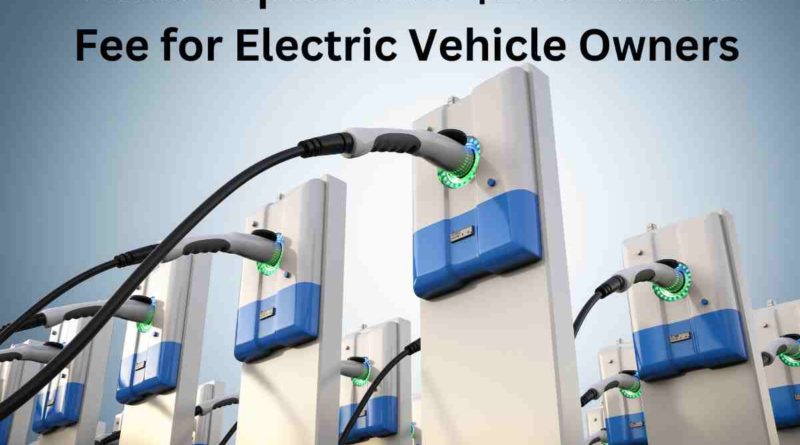Texas Implements $200 Annual Fee for Electric Vehicle Owners
Texas Implements $200 Annual Fee for Electric Vehicle Owners: As the world gravitates towards sustainable energy solutions, electric vehicles (EVs) are at the forefront of the green revolution. However, with this shift comes new challenges and policies. Beginning September 1, Texas will introduce a $200 annual fee for electric vehicle owners, aiming to compensate for the loss of gas tax revenue.
The Move Towards Electric: A Global Trend
The global push for reducing carbon emissions has seen a massive surge in the adoption of electric vehicles. Texas, a significant contributor to the U.S. economy, is experiencing this shift firsthand.
Reasons for EV Popularity
- Environmental Benefits: EVs produce zero tailpipe emissions, reducing air pollution.
- Cost-Efficiency: Lower operational costs compared to traditional gasoline vehicles.
- Incentives: Many governments offer tax credits, rebates, and grants to promote EV adoption.
Why the $200 Fee? Understanding the Rationale
The decision to impose an annual fee on electric vehicle owners in Texas isn’t arbitrary. There are underlying economic and infrastructural reasons.
Compensating for Lost Gas Tax Revenue
The state of Texas, like many others, relies significantly on gas tax revenue to fund infrastructure projects, especially road maintenance. As more Texans opt for electric vehicles, there’s a decline in gasoline consumption, leading to reduced gas tax revenue.
Ensuring Equal Contribution
The $200 fee ensures electric vehicle owners contribute to the state’s infrastructure fund. This move aims to level the playing field, ensuring all vehicle owners, regardless of fuel type, support the maintenance and development of Texas roads.
Reactions and Implications
The introduction of the fee has elicited varied reactions from stakeholders.
Electric Vehicle Advocates
Many proponents of electric vehicles argue that the fee might deter potential EV buyers. They emphasize that while the intent to maintain infrastructure is valid, there might be better methods to achieve this without potentially slowing EV adoption.
Economic Analysts
The fee can be seen as a necessary adjustment from an economic standpoint. As consumption patterns change, so must revenue models. The $200 fee is a step towards adapting to Texas’s evolving landscape of vehicular transport.
Also, Read How Return on Assets (ROA) is Most Closely Related to Profitability
Looking Ahead: The Future of EVs in Texas
Despite the introduction of the fee, the trajectory of EV adoption in Texas is unlikely to see a significant decline. The benefits of electric vehicles to the environment and the wallet remain compelling.
Possible Revisions
Given the nascent stage of this policy, there’s always room for revision. Depending on its impact and the feedback from the community, Texas may consider modifications in the future.
Addressing Infrastructure Needs: Texas Implements $200 Annual Fee for Electric Vehicle Owners
Texas is vast, and its roads stretch across varied terrains, from bustling urban centres to serene rural landscapes. Maintaining such an extensive infrastructure is no small feat.
Challenges of Expanding Infrastructure
The Lone Star State has witnessed an influx of new residents and businesses, necessitating expanding and upgrading its roadways.
- Meeting Urban Demands: With cities like Austin, Houston, and Dallas experiencing rapid growth, urban infrastructure requires constant upgrading.
- Rural Connectivity: Ensuring that remote parts of Texas remain connected is vital for balanced economic growth.
- Weather Resilience: Texas faces varied weather challenges, from hurricanes to droughts. Roads must be resilient to withstand these extremities.
Allocating Funds
The revenue from the $200 fee will flow into the state’s infrastructure fund. Proper allocation is crucial to ensure that it addresses the most pressing needs first, such as repairing ageing bridges or expanding congested highways.
Potential Alternatives to the Fee
While the $200 fee has been implemented, it’s worth exploring other avenues that could supplement or even replace this approach.
Mileage-Based Fees
Some experts suggest a system where drivers are charged based on travel miles. This would mean both gasoline and electric vehicle owners contribute in proportion to their road usage.
Public-Private Partnerships
Engaging private entities in infrastructure projects might alleviate some funding pressures. Toll roads, for instance, can be developed and managed by private companies, providing state-of-the-art roadways without dipping extensively into public funds.
Green Bonds
Another innovative solution could be the issuance of green bonds. Funds raised from these bonds, explicitly for eco-friendly projects, could be allocated for public transport or EV charging infrastructure, promoting a sustainable transit ecosystem.
Balancing Ecology with Economy
As Texas forges ahead, it’s imperative to strike a balance. On the one hand, environmental concerns demand swift action towards sustainable solutions like EVs. Conversely, economic realities and the need for robust infrastructure can’t be ignored.
Promoting Green Initiatives
While the fee on electric vehicles is a fiscal solution, Texas can also ramp up its efforts to promote green initiatives. Incentives for renewable energy, support for public transport, and urban green spaces can all contribute to a sustainable future.
Engaging with Stakeholders
A collaborative approach involving vehicle manufacturers, environmental groups, and the public can lead to holistic solutions. Regular dialogues and forums can provide insights and feedback, refining policies to align with Texas’s aspirations better.
Conclusion: Texas Implements $200 Annual Fee for Electric Vehicle Owners
The $200 annual fee for electric vehicle owners in Texas is a testament to the changing dynamics of the automotive industry and the state’s economy. While it presents short-term challenges for EV advocates, it underscores the need for evolving policies in a rapidly changing world.
